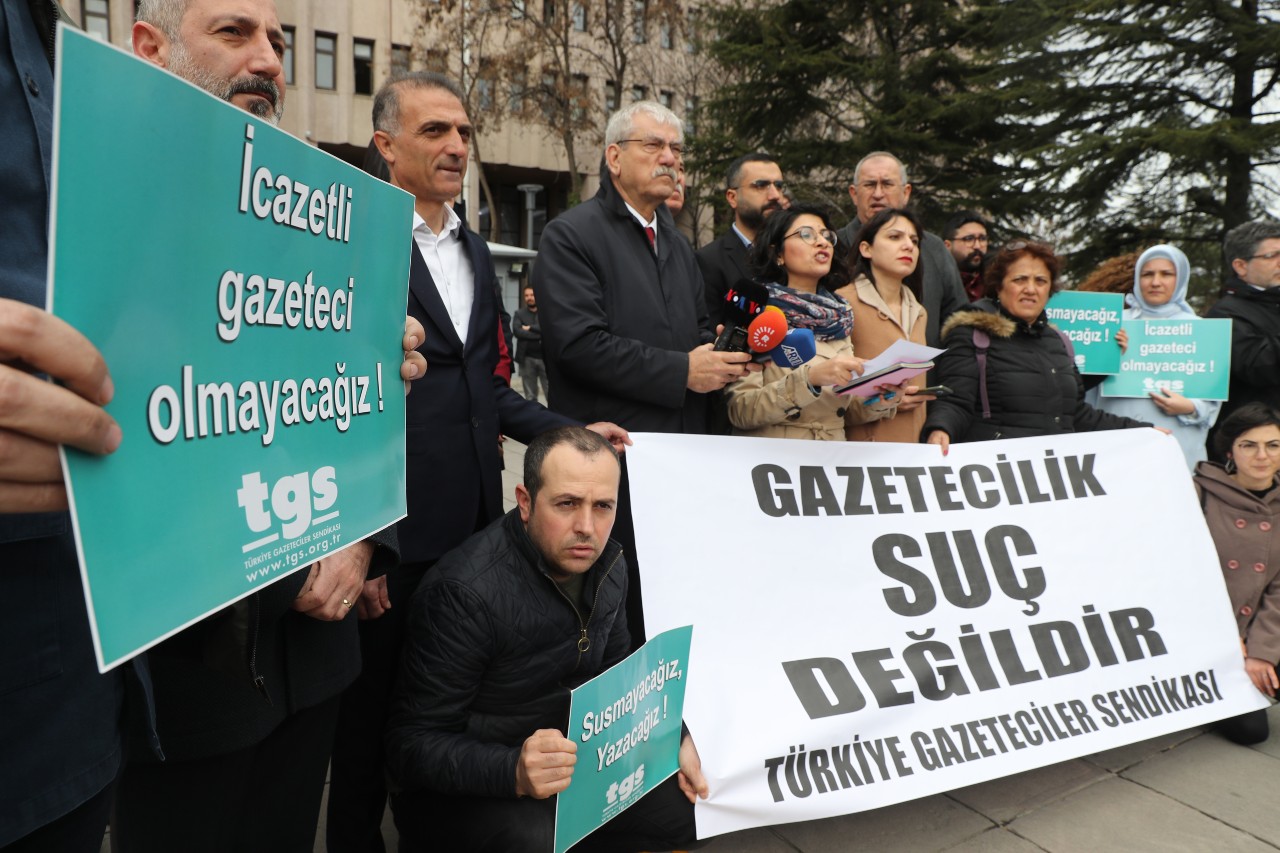A figures-based overview of press freedom in Turkey, prepared by Reporters Without Borders (RSF), has revealed that more than 200 journalists and media workers have been imprisoned in the country in the past five years as Turkey continues to be one of the world’s leading jailers of journalists.
The report, titled “Turkey – press freedom in figures,” details data compiled by RSF with help from its local partner, Bianet, that show the scale of the crackdown on press members and outlets that gained momentum following a failed coup in July 2016.
According to the report a total of 48 journalists spent at least one day in police custody in 2020 due to their news pieces covering topics such as the fate of Syrian refugees in Turkey, the Justice and Development Party (AKP) government’s handling of the COVID-19 pandemic and the Kurdish issue.
Since the election of Recep Tayyip Erdoğan as president in 2014, 63 journalists have been convicted of “insulting the president” under Article 299 of the Turkish Penal Code (TCK), the report said.
“Journalists are also often convicted under the terrorism law, usually on a charge of supporting or being a member of an illegal organization. The law on banking and the law or capital markets are also used to prosecute and convict business reporters,” RSF added.
Journalists in Turkey reportedly have been the targets of at least 139 physical attacks in the past five years, with at least 18 of them occurring in 2020 alone.
RSF also underlined that some 90 percent of Turkish media outlets are now controlled by pro-government businessmen and that a total of 1,358 online articles or links to articles were deleted in 2020 on orders issued by local authorities in response to requests from Erdoğan, his son Bilal Erdoğan or his son-in-law Berat Albayrak as well as pro-government businessmen or politicians.
At least 160 media outlets have been forced to close since the 2016 coup attempt, the report stated, adding that the state of emergency measures adopted days after the attempt were used not only to shut down media regarded as sympathetic to US-based Muslim preacher Fethullah Gülen, who inspired the Gülen movement, but also to silence pro-Kurdish media and left-wing media.
The ruling AKP has accused the faith-based Gülen movement, which it labels as a terrorist organization, of masterminding the abortive putsch although both Gülen and his followers have strongly denied involvement in the coup attempt or any terrorist activity.
According to RSF, some 3,436 journalists have been fired from Turkish media outlets in the past five years, with 215 of them terminated in 2020. Throughout the same year, Turkey’s critical newspapers were denied state advertising for a total of 276 days, which deprived them of the revenue they need to survive, the report said.
Turkey, which is ranked 154th out of 180 countries in RSF’s 2020 World Press Freedom Index, was ordered by the European Court of Human Rights (ECtHR) to pay a total of 234,760 euros ($284,939) in compensation for violating journalists’ rights in the past five years.


